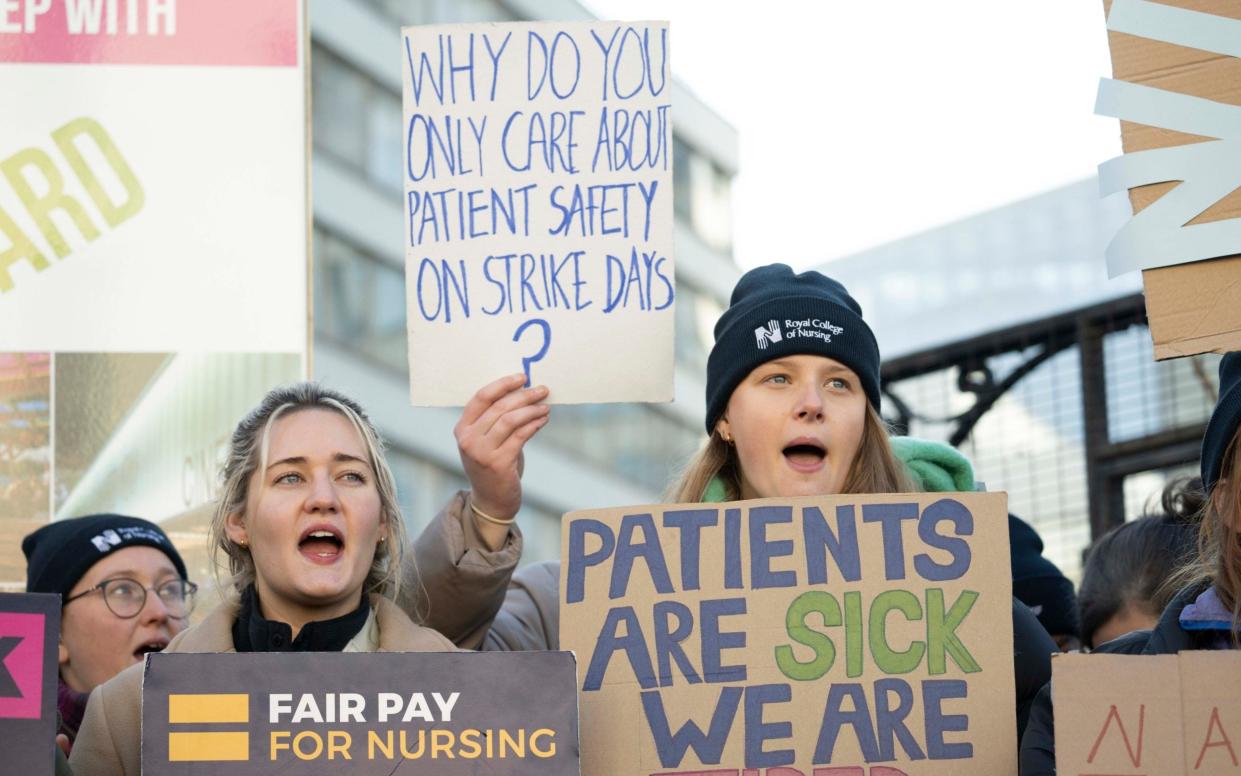NHS union members launch campaign to reject pay deal

Members of NHS unions are organising a campaign to reject a pay deal negotiated after months of talks.
The cross-union group, NHS Workers Say No, has sent out leaflets and created WhatsApp networks as part of its’ efforts to persuade members to vote against the 5 per cent increase announced last week.
Royal College of Nursing members are said to be some of the most active in the group, and are also seen as the most likely to reject the pay deal as they were the first nursing union to strike, the Guardian reports.
Two RCN activists are also reportedly circulating a petition to hold a vote of no confidence in the union’s leaders, including Pat Cullen, the chief executive.
The pay deal agreed last week for around one million NHS staff, including nurses, ambulance workers and midwives, has been backed and recommended by unions, and is set to go to members for a vote.
Campaigners believe the vote is likely to be close.
The terms of the negotiated deal are understood to include a five per cent pay rise for next year, and a bonus of up to six per cent for the current financial year.
The terms are also understood to include a two per cent non-consolidated payment award relating to 2022/23 and a “Covid recovery bonus” averaging around four per cent.
Unite the Union made clear it would not be recommending the latest pay deal and would be leaving the decision up to members.

On Friday, NHS Workers Say No sent out a leaflet to members of Unite, Unison, the GMB and RCN, in which it said: “Make no mistake – it was strike action that got the unions in the room with the government, and it is strike action that will deliver full pay restoration.”
The group also helped organise an online call that same day, which was joined by hundreds of NHS staff, almost all of whom were opposed to the deal, attendees claimed.
Harry Eccles, a clinical nurse specialist and member of NHS Workers Say No, said: “It’s an insulting offer. It goes nowhere near what we set out to achieve.
“The job for nurses like me is to speak to our colleagues across the United Kingdom, across different unions to say we need to reject this.”
An RCN spokesman said: “Members will vote in the ballot that opens soon and that is the best way for them to tell government and the college how they feel about this pay offer.
“This democratic process is extremely important to us and we always committed to giving members a vote on the government’s final offer. All NHS staff can see what they would personally gain from the deal and vote accordingly.”

